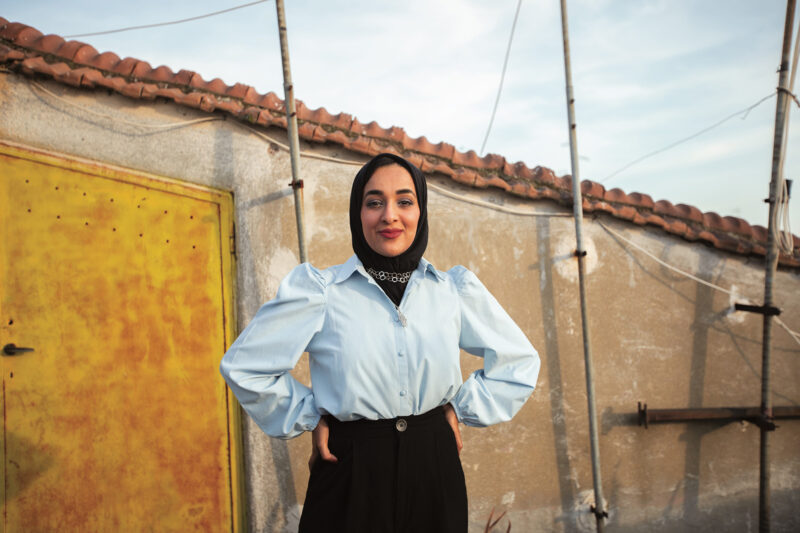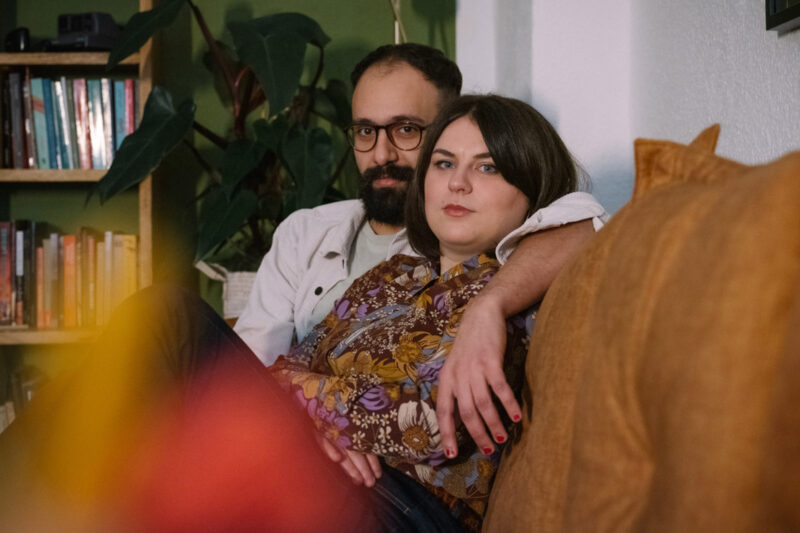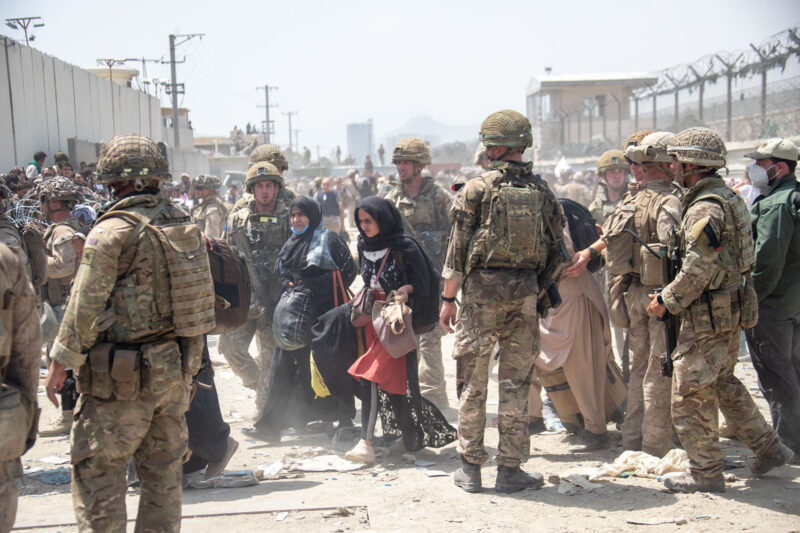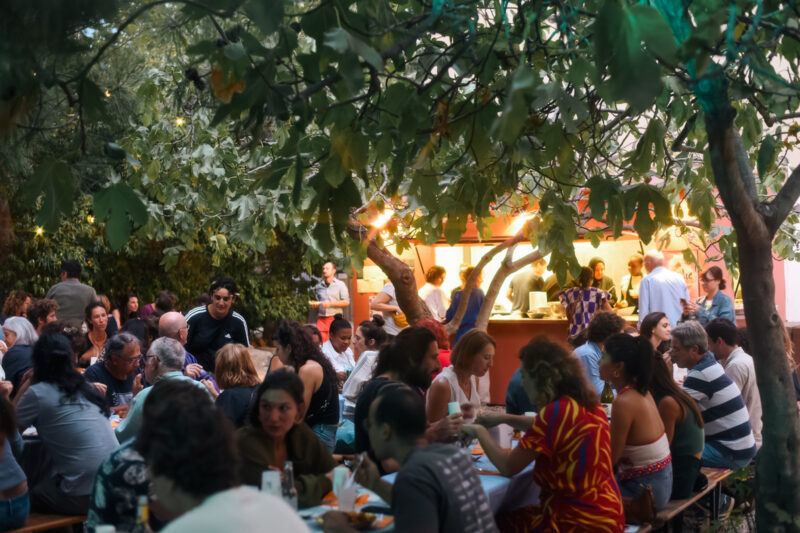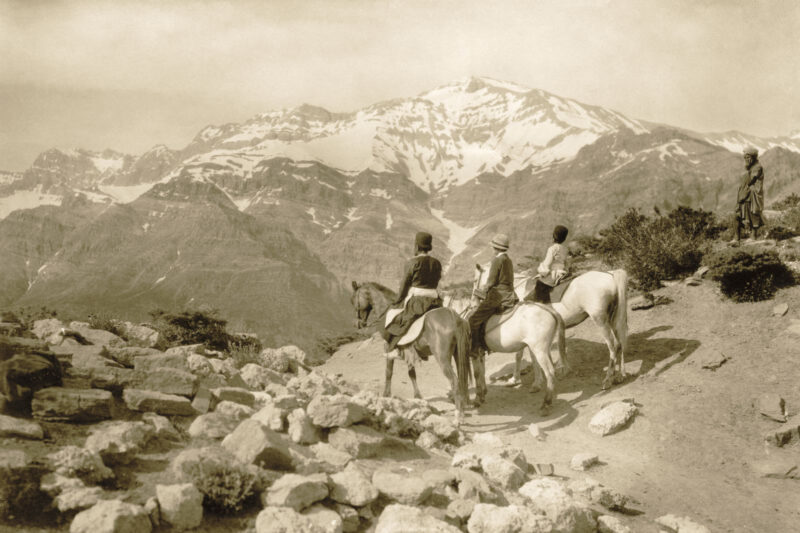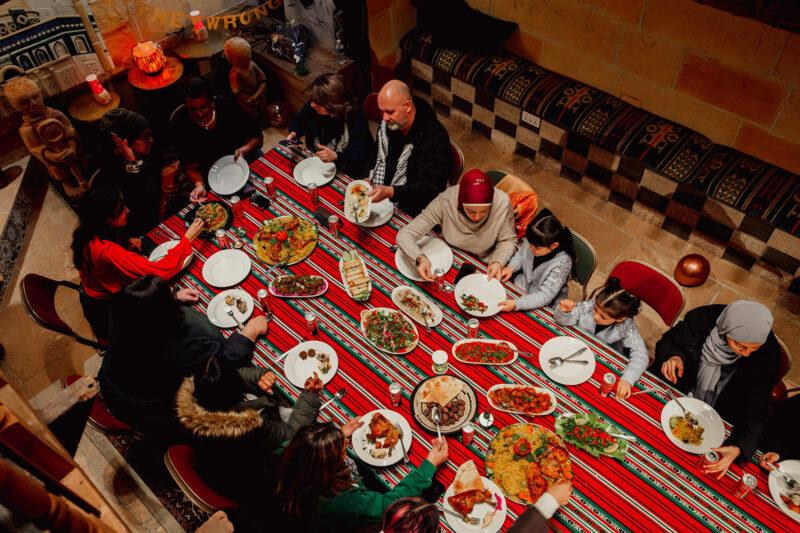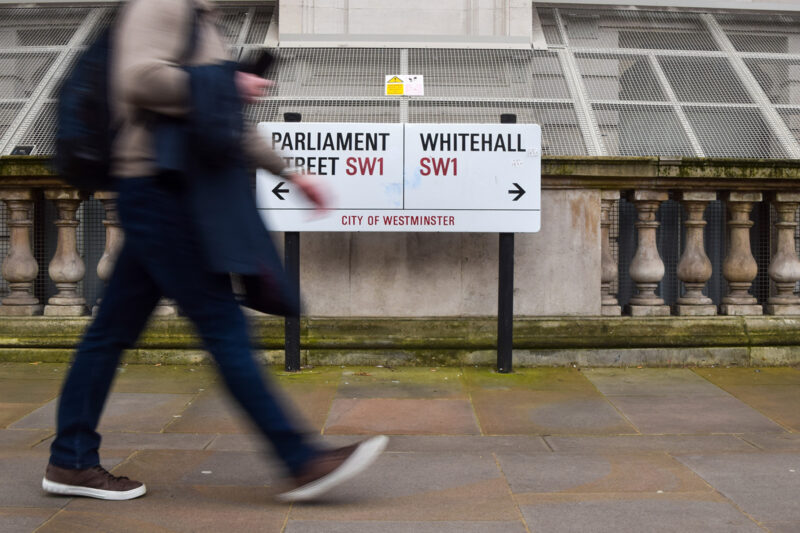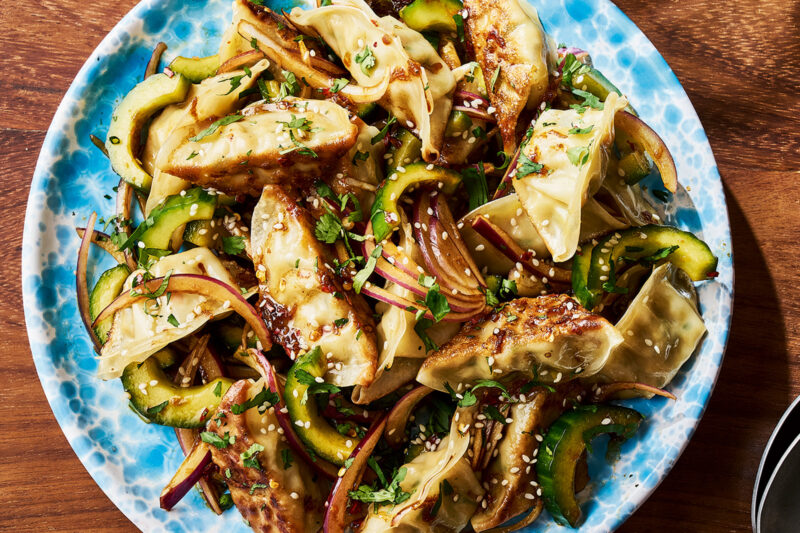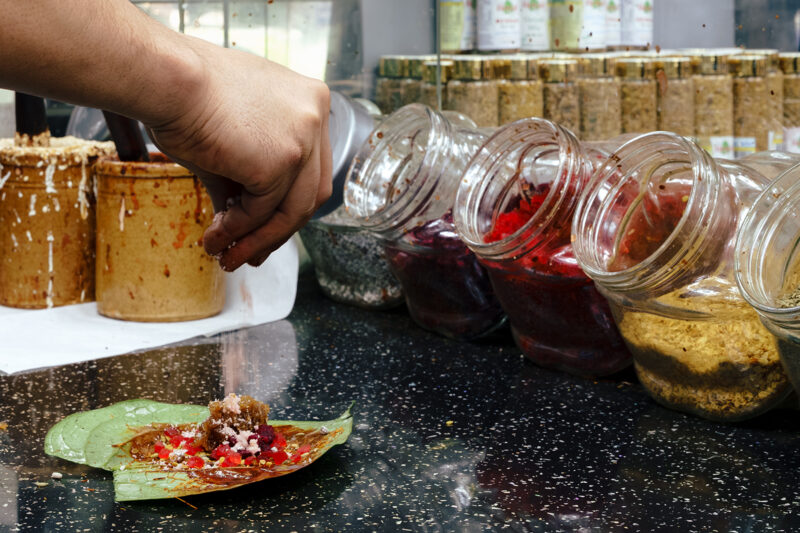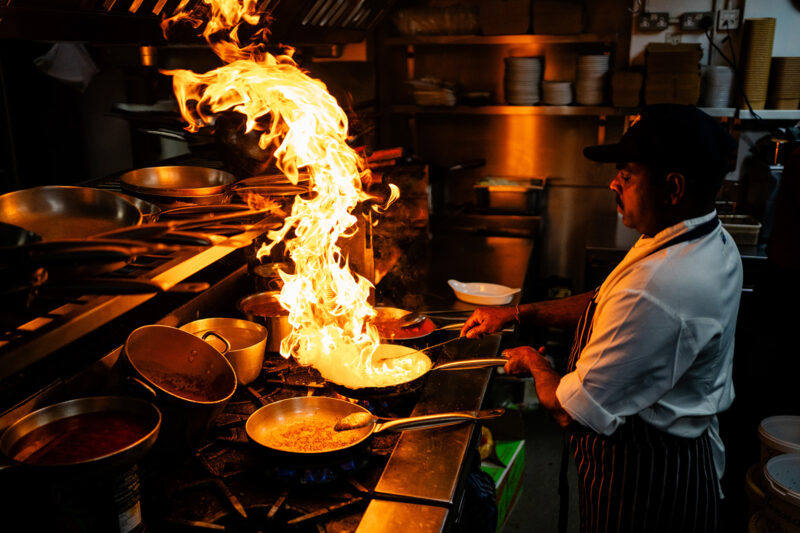Why Rome’s best pizza is Egyptian
The chefs that have come to dominate the Roman pizza industry offer much-needed hope to migrants being shut out of Meloni’s Italy
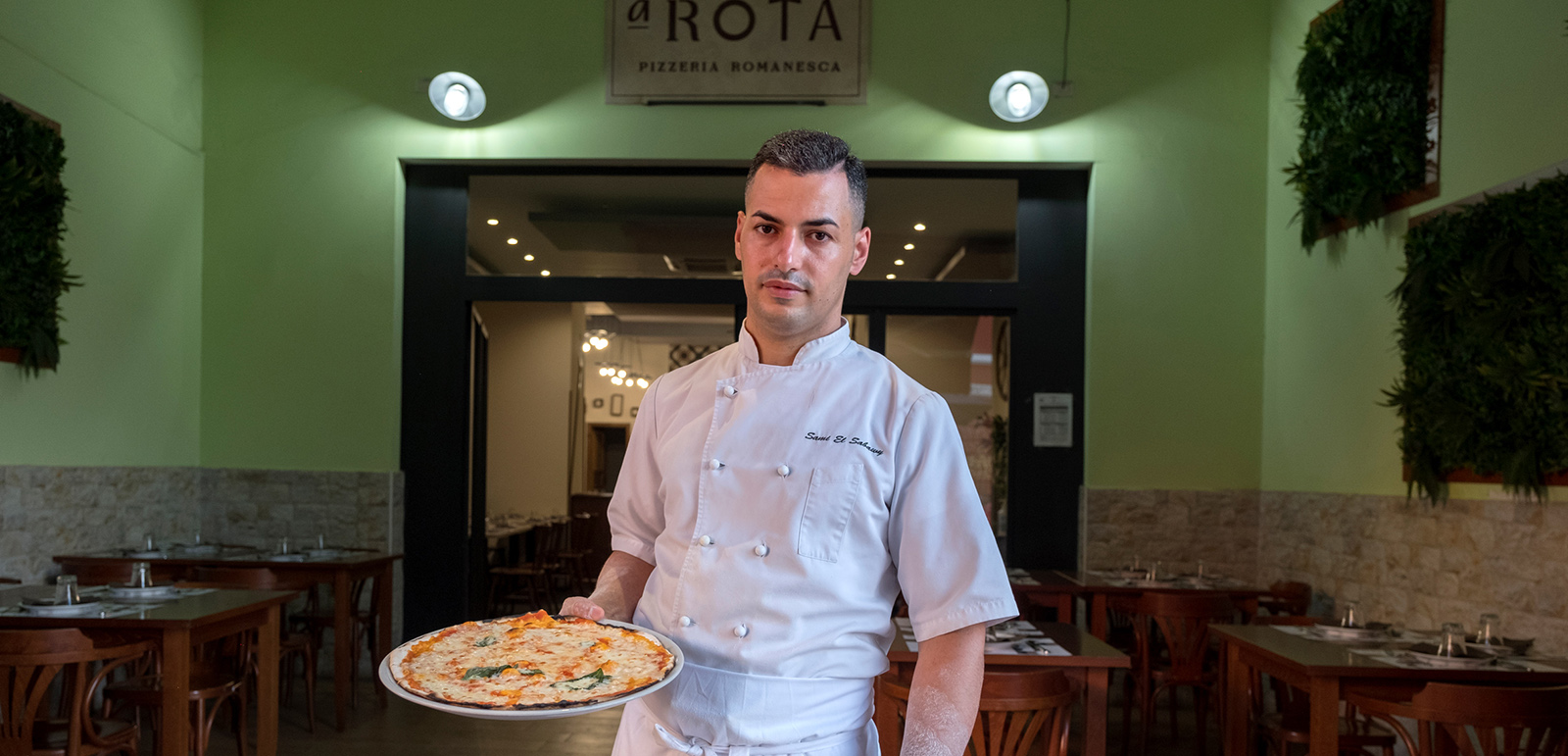
Inside the cosy, modern dining room of A Rota, a popular pizzeria in Rome’s multicultural Tor Pignattara neighbourhood, waiters are run off their feet serving a local clientele. Romans flock to this restaurant for its Pizza Romana, set apart from the Italian capital’s countless other pizzas by its thinner, crunchier crust. Also, the chef is Egyptian.
Tiziana Fiorentino, who was born and raised in Rome, is unfazed to read the very un-Italian name of the pizza chef printed on the napkin next to her cutlery – Sami el-Sabawy. “Pizza here is delicious, it’s the best in the city,” she said, tucking into a slice of margherita topped with buffalo mozzarella. “It’s light, crunchy, and the service here is impeccable. I haven’t changed my go-to pizza place in the past three years.”
El-Sabawy, 35, acknowledges his restaurant’s popularity with pride. “When they taste my pizza, the quality speaks for itself. People don’t pay too much attention to whether the name is Italian or Arabic,” he said. Despite opening in January 2020, just before the Covid-19 pandemic hit Italy and sent the country into a lockdown that devastated many small businesses, el-Sabawy says: ‘‘A Rota is thriving.”
The chef says he was inspired by his father, Ramadan el-Sabawy. Like many Egyptian migrants who arrived in Italy in the 1970s, Ramadan trained to become a pizza chef. He went on to open El Sabawy Pizzeria on the outskirts of Rome near Nero’s tomb in the 1980s when, he explains, pizza shops were among the easiest businesses to open. “The Egyptians who arrived in the 1970s found their niche in pizzerias. One generation after another, they would call their relatives and friends to join a network of fellow Egyptians,” Ramadan said. “Our path to integration in Italy often began like this.”
Pizza might be among the most iconic Italian foods but pizza-making has come to be regarded as a menial, low-paid job that Italians no longer want. According to 2013 data gathered by Accademia Pizzaioli, Italy’s main pizza-makers’ organisation, at least 35% of all pizzaioli — or pizza chefs — currently working are not born to Italian parents, and some 20,000 of them are Egyptian. Similarly, Milan is home to 119 pizza-makers from Egypt and just 31 from Campania, the southern region around Naples that first made pizza famous in the 19th century.
“Egypt has a consistent bread-making tradition very similar to Italy’s pizza dough-making,” said Marta Scaglioni, an anthropologist who specialises in Egyptian migration to Italy. She adds, however, that economic opportunity rather than cultural similarities was the main draw for Italy’s Egyptian diaspora to the industry. “When [Egyptians] started flocking into Italy in the 1970s, they filled a business gap. Italy was experiencing an economic boom that led to restaurant openings, and it offered immigrants many opportunities for entry-level jobs in this sector.”
This first wave of Egyptian migration to Italy was largely single men such as Ramadan escaping poverty, mandatory military conscription and political turmoil. Most arrived in the country on tourist visas, got a job, then applied for work visas. “Italy represented a dream for many of us,” Ramadan explained. “Its booming economy offered many opportunities. Its lifestyle and culture, which feels closer to the Middle East than other European countries, made it the ideal destination.”
‘What I love about this job is seeing customers satisfied. It’s through the belly that you get people closer’
From 2002, there was another influx of Egyptian pizza-makers when Silvio Berlusconi’s liberal, pro-free trade government changed Italy’s migration laws to allow Egyptian workers to arrive on a quota system of work visas. This continued until 2018, when a succession of far-rightwing governments began rolling back migrants’ rights, heralding a nationalistic trend in Italian politics that finally, last September, delivered Giorgia Meloni and her far-right Brothers of Italy party to power at the general elections on the back of an aggressively anti-migrant campaign.
In May, Meloni’s new government passed a law granting humanitarian protection only to asylum-seekers escaping conflict and persecution and unaccompanied minors. Economic migrants would rarely qualify for entry under these rules unless they could prove political or religious persecution. With Egypt suffering under one of the worst economic crises in its history and official entry points closed to them, fishing boats overloaded with as many as 600 Egyptian migrants per vessel started to depart from eastern Libya and head towards the Italian coast. In April, Italy declared a state of emergency when irregular migrant arrivals reached their highest level since 2017.
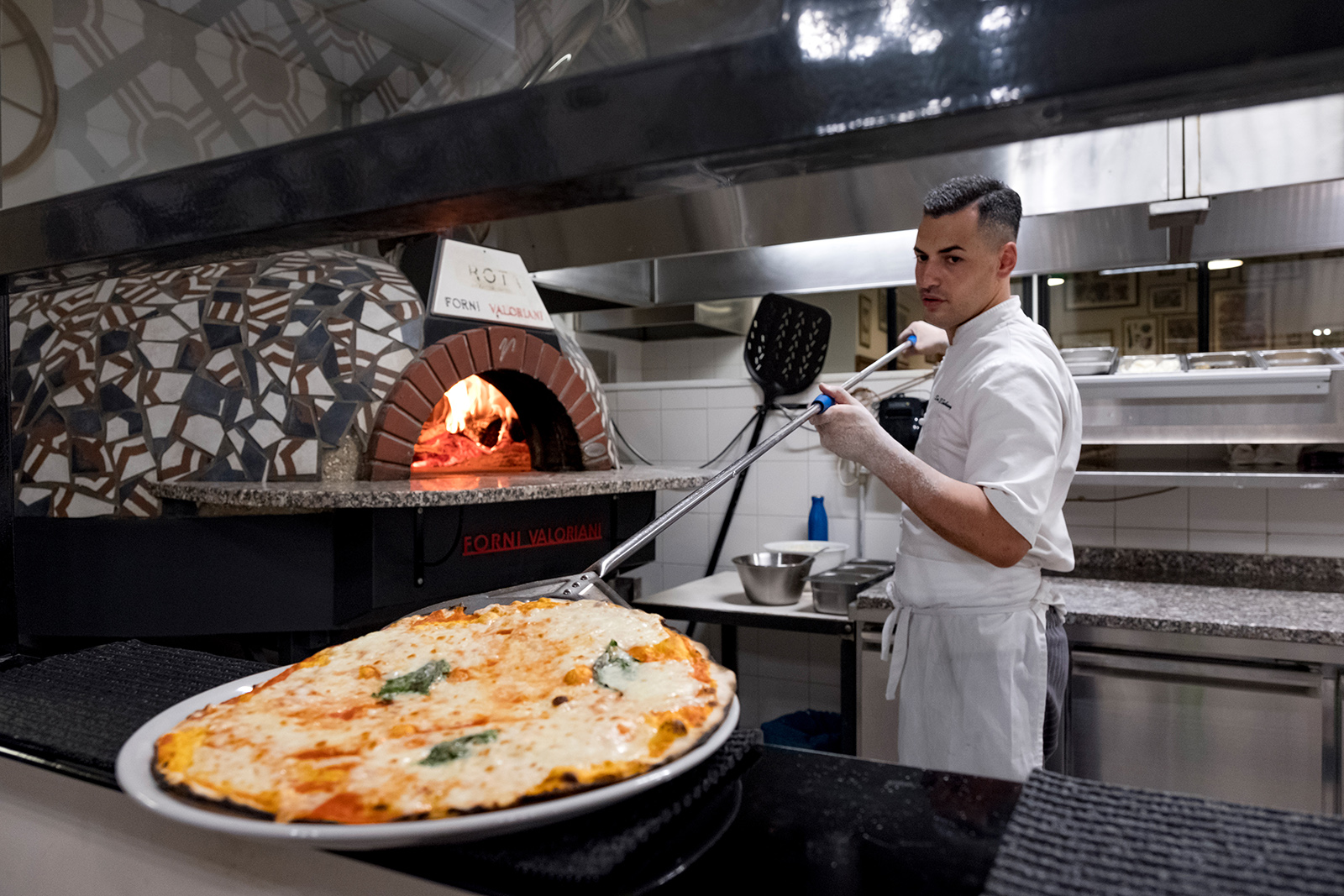
“In the past five years, Egyptian migrants arriving in Italy are mostly unaccompanied minors coming by boat. They currently represent the second biggest nationality among unaccompanied minors in Italy,” explains Chiara Cavalieri, head of Eridanus, an Italian-Egyptian cultural centre based in Turin, adding that their families send them off to Europe to provide for them financially, knowing that the current immigration system won’t expel an unaccompanied minor.
“With the current state of regulations, coming through dangerous boat journeys organised by traffickers is the fastest available route,” Cavalieri said.
Mohsen Owida landed in Italy in 2019 from Port Said, a coastal city in north-eastern Egypt, a couple of months before his 18th birthday. As an unaccompanied minor, he was placed in a migrant reception centre in the Italian northern region of Piedmont. He was also given the opportunity to enrol in a pizza-making school.
“I left Egypt because of the economic situation, but I soon learnt that here it is not easy either. You can join an Egyptian-run business but you still need to learn the language and deal with paperwork to stay legal,” Owida said. “I love cooking. I was looking for a career that I like, but that doesn’t contradict my Islamic principles. One day I’ll be able to open my own pizzeria, inshallah.”
This summer, Meloni attempted to address Italy’s dual crises of irregular arrivals and labour shortages with the offer of 425,000 work permits to non-EU nationals between now and 2025, while also broadening the categories of work they will be eligible for. How this policy will affect young Egyptians such as Owida remains to be seen, but with opinion polls showing approval ratings for Meloni’s nationalist party at an all-time high, Egyptian-run pizzerias such as the one Sami el-Sabawy and his father created offer a rare sense of refuge and inclusion for new arrivals to the capital, however they arrive.
At A Rota, where around 130 people are served every night, it’s almost impossible to get a table without booking. Sami’s pizzeria has become a beacon of hope for those with an immigrant background dreaming of making it in Italy. “What I love about this job is seeing customers satisfied. It’s through the belly that you get people closer,” he said. “I don’t see myself doing any other job, because this perfectly represents both my identities, the Egyptian and the Italian.”
 Newsletter
Newsletter


